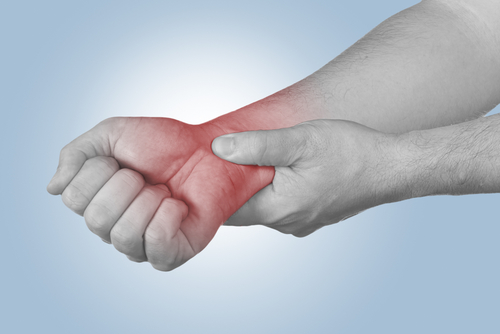Understanding Repetitive Motion Injuries
At HURT 911 Colorado Injury Centers, we specialize in diagnosing and treating repetitive motion injuries (RMI) caused by workplace activities, auto accidents, and daily routines. These injuries develop over time due to repetitive movements that strain muscles, tendons, and joints, leading to pain, stiffness, inflammation, and long-term mobility issues if left untreated. Our team also assists individuals seeking workers’ compensation benefits, ensuring they receive the necessary medical care and documentation to support their claims.
What Are Repetitive Motion Injuries?
Repetitive motion injuries, also known as repetitive strain injuries (RSI) or repetitive motion injury, occur when the same motion is performed continuously, causing microscopic tears, inflammation, and chronic pain in affected areas. These injuries commonly affect the wrists, shoulders, elbows, hands, and knees and are often associated with activities such as typing, lifting, assembly-line work, and prolonged use of handheld devices.
Types of Repetitive Motion Injuries
Repetitive motion injuries can affect various parts of the body, including the hands, wrists, elbows, shoulders, and back. Some common types of repetitive motion injuries include:
- Tendinitis: This condition involves inflammation of the tendons, which connect muscles to bones. Tendinitis can occur in various areas such as the shoulders, elbows, ankles, or knees, often resulting from repetitive tasks that put too much stress on these tendons.
- Bursitis: Bursitis is the inflammation of the fluid-filled sacs that cushion joints and reduce friction between bones and tendons. It commonly affects the hip and knee joints, often due to repetitive movements or poor posture.
- Carpal Tunnel Syndrome: This well-known repetitive stress injury involves the compression or irritation of the median nerve in the wrist. It leads to numbness, tingling, and pain in the thumb, index, and middle fingers, often caused by repetitive activities like typing or using handheld devices.
- Ligament Sprains: These occur when the ligaments, which connect bones to each other, are stretched or torn. Ligament sprains can happen in the wrists, ankles, or knees, frequently due to repetitive motions or sudden, forceful movements.
- Muscle Strains: Muscle strains involve the stretching or tearing of muscles, which can occur in the shoulders, elbows, or knees. These injuries are often the result of repetitive tasks that overwork the muscles.
Common Symptoms of Repetitive Motion Injuries
Individuals experiencing RMI may notice:
- Persistent pain or tenderness in the affected area
- Tingling or numbness, especially in the hands and fingers
- Swelling or inflammation around joints and muscles
- Joint pain
- Decreased strength or limited mobility
- Pain that worsens with movement or repetitive activities
Risk Factors for Repetitive Motion Injuries
Several factors increase the risk of developing RMI, including:
- Repetitive tasks involving constant motion
- Poor posture and improper ergonomics
- Frequent heavy lifting or forceful exertion
- Lack of breaks or insufficient rest periods
- Prior injuries or existing musculoskeletal conditions
- Overuse injuries caused by repetitive tasks and lack of rest, which can lead to conditions requiring expert care and advanced techniques like musculoskeletal ultrasound for effective treatment
Diagnosis and Treatment at HURT 911 Colorado Injury Centers
Our experienced medical professionals provide comprehensive diagnostic services for repetitive motion injuries, including repetitive strain injuries, through physical examinations, musculoskeletal ultrasounds, X-rays, and MRIs to accurately assess the severity of your condition.
Customized Treatment Options
At HURT 911, we offer a range of treatments tailored to relieve pain, restore mobility, and prevent further damage from repetitive motion injuries and repetitive stress injuries:
- Chiropractic Care – Gentle adjustments to alleviate pressure and realign the musculoskeletal system.
- Physical Therapy – Personalized rehabilitation plans to strengthen muscles, improve flexibility, and promote healing.
- Nonsteroidal Anti-Inflammatory Drugs (NSAIDs) – Medications to reduce swelling and discomfort.
- Ergonomic Adjustments – Guidance on workplace and lifestyle modifications to prevent further injury.
- Pain Management Techniques – Including massage therapy, hot/cold therapy, and therapeutic exercises to accelerate recovery.
Long-term Consequences of Untreated Repetitive Motion Injuries
If left untreated, repetitive motion injuries can lead to significant long-term consequences, impacting your quality of life. Some of these consequences include:
- Chronic Pain: Persistent pain that can last for months or even years, making it difficult to perform daily activities.
- Limited Mobility: Reduced range of motion and flexibility in the affected area, which can hinder your ability to move freely and comfortably.
- Permanent Damage: Irreversible damage to the muscles, tendons, or ligaments, which can result from prolonged neglect of the injury.
- Disability: In severe cases, repetitive motion injuries can lead to permanent disability, preventing you from performing daily tasks and potentially affecting your ability to work.
Seeking Medical Attention for Repetitive Motion Injuries
It’s crucial to seek emergency medical care if you experience any of the following symptoms, as early intervention can prevent further damage and promote faster recovery:
- Severe Pain: Sudden or severe pain in the affected area that doesn’t improve with rest.
- Numbness or Tingling: Persistent numbness or tingling sensations in the hands or feet, which could indicate nerve involvement.
- Swollen or Red: Noticeable swelling or redness in the affected area, which may signal inflammation or infection.
- Difficulty Moving: Difficulty moving the affected area or performing daily activities, which can indicate a more serious injury.
- No Improvement: Lack of improvement in symptoms despite rest and self-care measures.
A healthcare professional, such as an occupational therapist or physical therapist, can diagnose and treat repetitive motion injuries. They can also provide guidance on prevention and management strategies to help you avoid future injuries.
Preventing Repetitive Motion Injuries
Preventative measures can significantly reduce the risk of developing RMI. We recommend:
- Taking frequent breaks to rest muscles and joints
- Maintaining proper posture while working or lifting
- Using ergonomic equipment to reduce strain on hands, wrists, and back
- Strengthening exercises to improve flexibility and endurance
- Seeking early medical intervention at the first sign of discomfort
Why Choose HURT 911 Colorado Injury Centers?
At HURT 911 Colorado Injury Centers, we are dedicated to helping individuals recover from injuries and regain their quality of life. Our Denver-based clinics provide expert medical care, chiropractic services, and transportation assistance to ensure you receive the treatment you need without added stress. Whether your RMI stems from an auto accident, workplace injury, or daily routine, we offer holistic, patient-centered care tailored to your recovery.
We proudly serve employees from any employer across Colorado, including major companies like Amazon and FedEx. No matter where you work, our team is here to provide the specialized care you need. Additionally, we offer telehealth services for those unable to visit in person, ensuring convenient and accessible treatment. For those requiring immediate attention, we also provide same-day service to address injuries promptly and prevent further complications.
Schedule Your Consultation Today
If you are experiencing symptoms of repetitive motion injuries, don’t wait until the pain worsens. Contact HURT 911 Colorado Injury Centers today to schedule a consultation with our specialists. We’ll develop a personalized treatment plan to help you heal faster and prevent future injuries.


